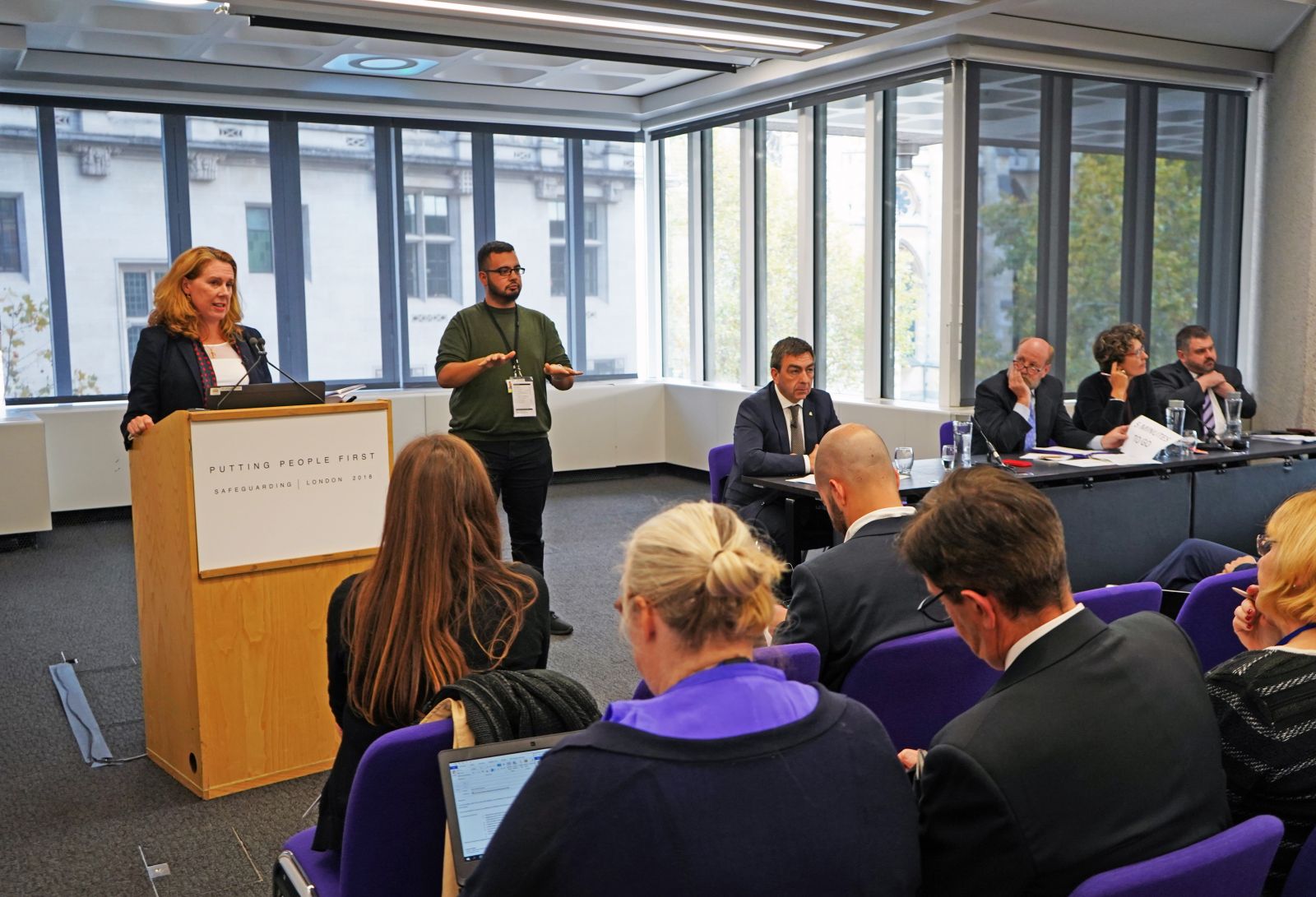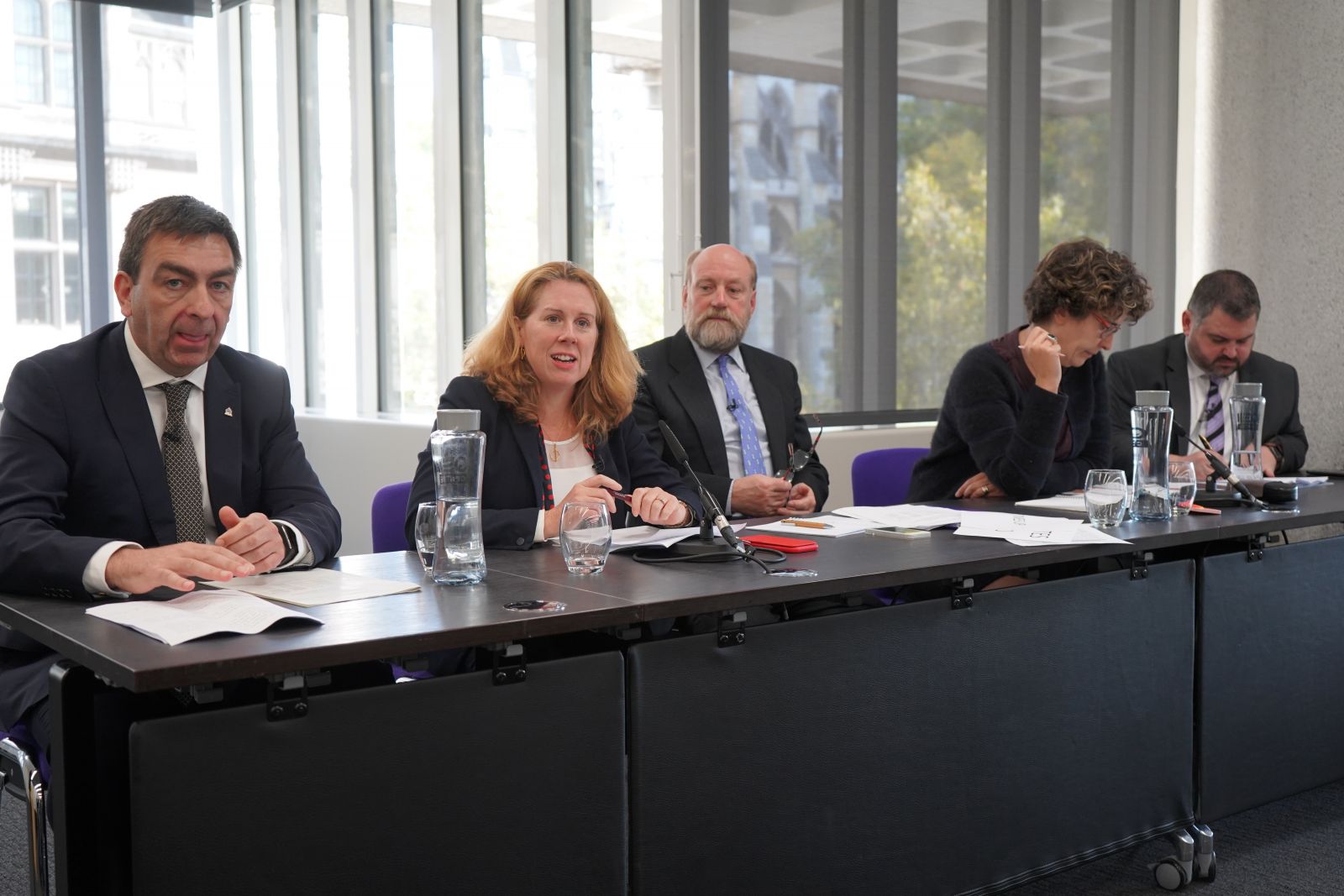Mainstreaming PSEA in the employment cycle
At the Safeguarding Summit our Executive Director, Tanya Wood, participated in a panel on preventing transgressors entering the aid sector by looking at the employment cycle. Moderated by Jonathan Potter, former Executive Director of People in Aid, the panel was also joined by Steve Reeves, Director of Safeguarding at Save the Children, Kate Halff, Executive Secretary of the Steering Committee for Humanitarian Affairs (SCHR) and Paul Stanfield, Director of Organised and Emerging Crime at INTERPOL.
“We cannot address how we work with people affected by crisis without critically considering how staff understand this incredible responsibility and the related power and trust issues that go along with it,” started Tanya, explaining the importance of the employment cycle in tackling Sexual Exploitation, Abuse and Harassment.
“Staff have to understand that people affected by crisis put a huge amount of trust in us … and this is why being emphatic about how seriously we take PSEA at all levels of the employment cycle is critical.”

Tanya emphasised that we have a duty to protect people affected by crisis from further harm, therefore it is crucial to prevent transgressors entering our organisations, and to have PSEA become a core component in the employment cycle. PSEA is integrated throughout the Core Humanitarian Standard on Quality and Accountability (CHS), a code ensuring that the right policies are in place at the organisational level and guides organisations on how to manage their staff.
Getting into the employment cycle, Tanya reminded the audience that “we need staff who are above reproach, and we can set this tone in job descriptions and adverts.” Attraction is just one side of the coin, “we also need to deter those we want to keep out, by making clear that checks will be made.”
Turning to the recruitment process, she stressed that “this is our next line of defence”. “We have to be extra diligent in checking any gaps in employment history.” At this stage, it is important to map out the candidate’s attitude to PSEA, and this is also the part where the system needs to play a collective role. Reflecting on on-boarding and continued reinforcement, Tanya asked the audience whether in their organisations’ practices enough efforts are made during the recruitment process and beyond, to make the employees aware of and truly understand the policies that they sign.
Concluding her presentation, Tanya emphasised that “sexual exploitation is one of the most horrific forms of abuse of trust, and PSEA has to be stated emphatically through every stage of the employment cycle.”

Tanya was followed by Steve Reeves, who shared the developments around the Humanitarian Aid Worker ID system, which will be a global register for aid workers. “It is known that a careful HR process reduces the likelihood of recruiting unsuitable people, but unfortunately it isn’t compatible with humanitarian response,” said Steve, highlighting a major challenge. Introducing such a database could help restore trust and deter abusers entering the sector, while saving time in the recruitment process.
Kate Hallf highlighted, that for our sector, “it is especially true that people who are abusers find ways to move from one organisation to another, as we are working in very chaotic environments.” To overcome this challenge, she advocated for an Inter-agency Misconduct Disclosure Scheme, which seeks to set a minimum standard for organisations to be able to share information with each other during the recruitment process. The aim of the scheme, Kate explained, is to “make a link between the organisation that is recruiting and the organisation that is employing, or previously employed the applicant.” The scheme will help disclose sexual misconduct during the recruitment process or, when the information is lacking, to be transparent about it.
Lastly, Paul Stanfield talked about Operation Soteria, an initiative by INTERPOL named after the Greek goddess of safety. “The aim of this project is to prevent suspected sex offenders from working with vulnerable adults and children,” he said. “The project will help our member countries develop and standardise their criminal record systems and facilitate bilateral mentorship to establish national certification schemes.”
The humanitarian and development sectors would benefit by being able to send queries via a centralised platform for background checks. Overall the initiative would “facilitate information exchange among the law enforcement community and the aid sector,” he explained.
